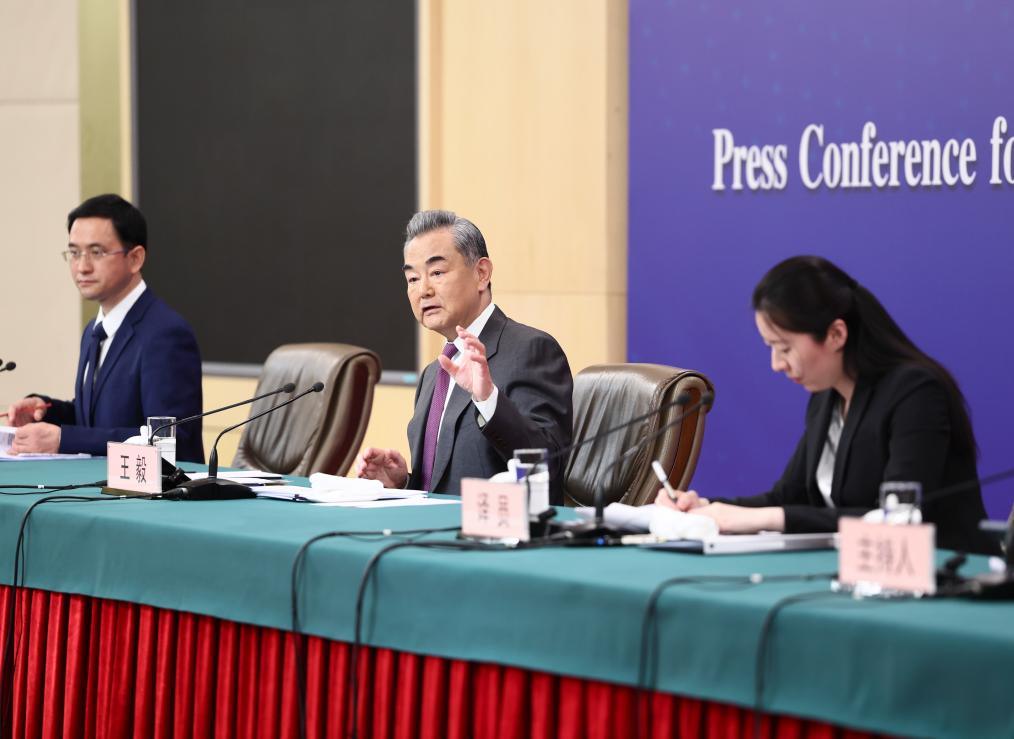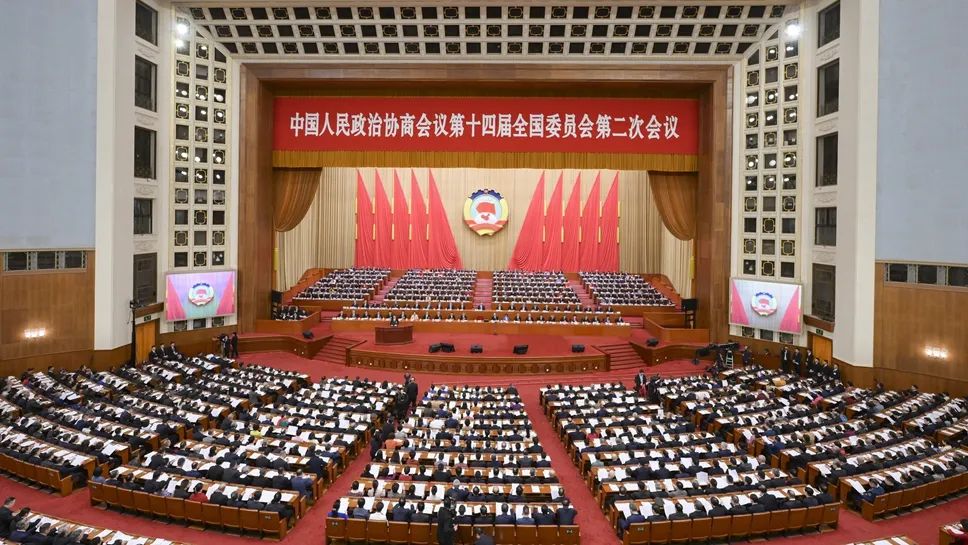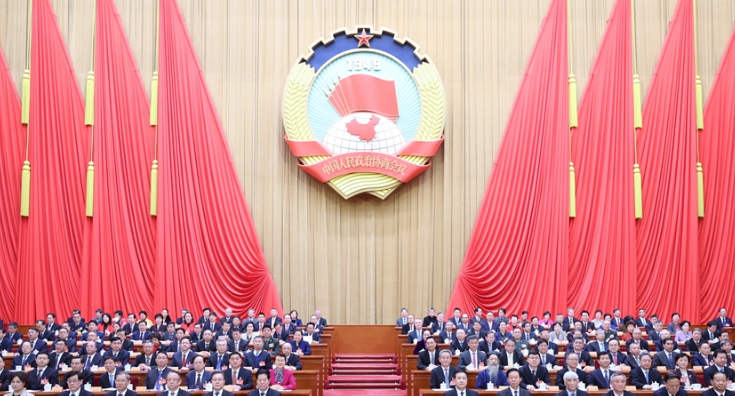
Huawei and ZTE
华为和中兴
Put on hold
请不要挂机
Two big Chinese telecoms firms come under fire in America
两家中国大型电信公司遭指责
A NEW congressional report about Huawei and ZTE, two of China’s largest telecoms firms, appears to have been written for vegetarians. At least, there is not much meat in it. The study, which was published on October 8th by the Intelligence Committee of the US House of Representatives, declares the firms a threat to America’s national security. Yet it presents little hard evidence to support its recommendations.
一项新出炉的关于两家中国最大的电信公司——华为和中兴的国会报告似乎是写给素食主义者的。至少该报告里面没有多少肉。这份由美国众议院情报委员会在10月8日发布的调查称上述两家公司对美国国家安全构成威胁。然而,其中几乎没有可以佐证这一说法的有力证据。
These are draconian. The committee calls for the Chinese firms’ networking gear and any other kit containing their components to be excluded from all American government systems—and those of contractors working on them. It wants Huawei and ZTE barred from buying any American companies. And it urges all American telecoms firms purchasing networking equipment to shun them.
其中涉及的抵制措施十分严厉。该委员会要求所有美国政府部门把这两家中国公司的网络设备和包含其零部件的其他产品排除在采购之外,连使用其产品的承包商也不例外。
The report comes at a time of rising trade friction, thanks to the election. It also underlines how deals involving high-tech infrastructure are becoming politicised. Australia has already blocked Huawei from taking part in its country-wide broadband system on national-security grounds. Canada hinted this week that Huawei could be excluded from work on a new, secure government network.
这份报告发布在贸易摩擦升温(由总统选举引起)的时候。这也凸显了涉及高科技基础设施的买卖正在被打上政治的烙印。澳大利亚已经以维护国家安全为由把华为挡在了参与建设该国国家宽带系统的大门之外。本周加拿大暗示可能会把华为排除在建设更加安全的新一代政府网络之外。
The congressional study frets that Huawei’s and ZTE’s products could be used as Trojan horses by Chinese spooks. It makes much of the firms’ opaque governance and the fact that they have internal Communist Party committees, as big Chinese firms generally do. However, it provides no evidence that these have influenced the firms’ behaviour. It drops hints that it has evidence from current and former Huawei staff that some of its employees in America may have been involved in “potentially unethical or illegal behaviour”. But it fails to spell out what. The details are classified.
该国会调查担心华为和中兴的产品可能被中国间谍当做特洛伊木马来用。其中对这两家公司不透明的管理和与公司内部共产党委员会的存在——这一中国很多大公司的一贯作风大做文章。然而,该调查却没有给出这一作风对公司行为产生的影响。其中还暗示美国已经掌握了从华为在职雇员和离职雇员得到的显示在美华为员工有“潜在性不道德或不合法的行为”的证据。但并未给出详细解释。其中的细节处于保密状态。
The committee’s investigators also cast doubts over Huawei’s efforts to build trust in its products elsewhere. In Britain, for instance, the firm has set up a centre where security-cleared staff, some of whom used to work for Britain’s signals-intelligence agency, vet the networking kit and software that the Chinese firm wishes to sell to telecoms companies there. BT, a British firms that buys Huawei equipment, says that having the firm as a supplier has not jeopardised the security of its networks.
该委员会的调查者还对华为在其他地区树立产品信誉的努力提出质疑。比如。华为在英国设立了一处研究中心用于为通过安全审核的职员(其中一些曾供职于英国的信号情报机构)审查网络设备和软件的安全性,而这些正是华为想卖给英国各电信公司的产品。一家采购过华为设备的英国公司BT说采用华为的产品并没有损害该公司的网络安全。
Huawei and ZTE have proposed a similar approach in America, working with outfits such as Electronic Warfare Associates and other private firms that vet high-tech gear for the US government. But the report says it is not clear yet that such steps would work in America. Why not? It gives no convincing reason. Instead, it says that a telecoms supplier should offer “a convincing set of diverse evidence” that its system “is worthy of our trust”. Such as? The report does not disclose.
华为和中兴已经提出在美国采取类似的办法的要求,比如与美国电子战协会和其他为美国政府审查高科技设备的机构共事。但是该报告称此类举动是否在美国行之有效还未曾知晓。为什么不呢?报告没有给出令人信服的理由。取而代之的是,该报告指出一家(合格的)电信设备供应商应该给出“一系列令人信服的不同证据”证明自家出售的系统是“值得我们信任的”。
Huawei, which generates only tiny sales in America, is not happy. “I can’t work with ifs, buts and maybes,” complains John Suffolk, Huawei’s global cyber-security officer and a former chief information officer for the British government. Moreover, the report glosses over the fact that many telecoms-equipment makers, such as Sweden’s Ericsson, also source kit and components in China. “People might worry that Huawei equipment is having malware put into it, but one could have exactly the same concerns about Ericsson’s equipment too,” says Pierre Ferragu of Sanford C. Bernstein, a bank.
华为,这家在美国市场销量甚微的企业并不高兴。“我接受不了“如果”“但是”“可能”这样的字眼”,华为全球网络安全主管,前英国政府首席信息官John Suffolk抱怨道。而且,该报告还掩饰了这样一个事实:很多电信设备制造商,如瑞典的爱立信也把成套设备和零部件的生产外包给中国。“人们可能会担心华为为其设备植入恶意软件,但是人们也可以以同样的理由怀疑爱立信的设备,”一家叫做Sanford C. Bernstein的银行雇员Pierre Ferragu说道。
A better approach, as The Economist has argued, would be for governments to be crystal clear about the standards that all telecoms-equipment suppliers must meet to win their business. Instead, America’s politicians appear to be indulging in techno-nationalism. “America likes to tell other governments not to meddle in technology and the internet, but here we are becoming more like China,” says Douglas Guthrie, the dean of George Washington University’s business school.
正如本刊所论证过的一样,各家政府把各自的电信设备采购标准清清楚楚的摆出来或许是一个更好的办法。相反的是,美国的政客们似乎是沉迷于技术民族主义不能自拔。“美国政府喜欢告知别国政府不要干涉科技和因特网的事情,然而,在此问题上我们却变得越来越像中国了,”乔治·华盛顿大学商学院院长Douglas Guthrie如是说。
 译言网
译言网
 2012-10-12
2012-10-12
 经济学家
经济学家
 485次
485次


 点赞(0)
点赞(0)

 收藏
收藏

 收藏资讯
收藏资讯

 收藏资讯
收藏资讯

 收藏资讯
收藏资讯

 收藏资讯
收藏资讯